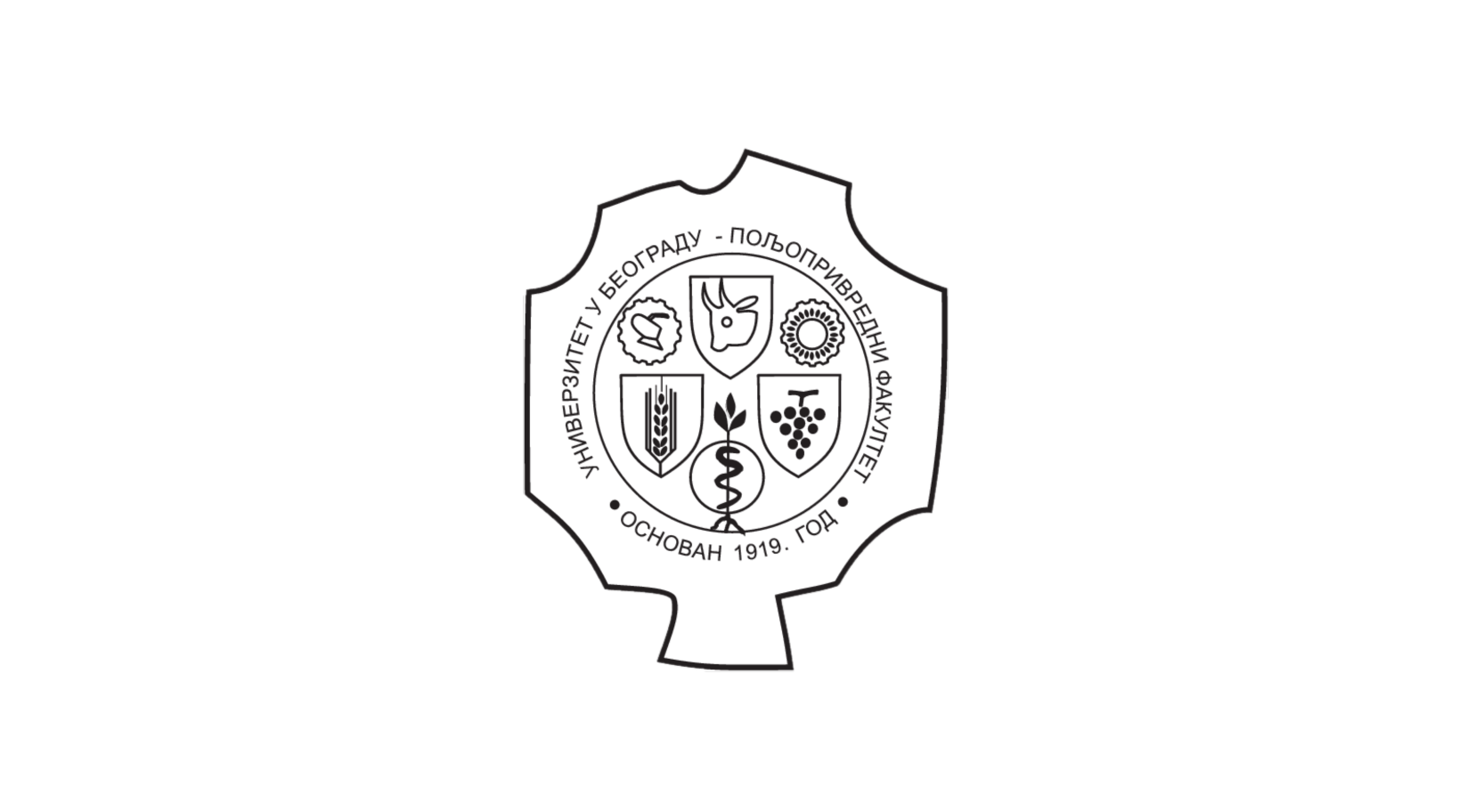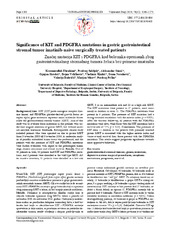Приказ основних података о документу
Significance of KIT and PDGFRA mutations in gastric gastrointestinal stromal tumor imatinib-naive surgically treated patients
| dc.creator | Ebrahimi, Keramatollah | |
| dc.creator | Sabljak, Predrag | |
| dc.creator | Simić, Aleksandar | |
| dc.creator | Skrobić, Ognjan | |
| dc.creator | Velicović, Dejan | |
| dc.creator | Sljukić, Vladimir | |
| dc.creator | Novaković, Ivana | |
| dc.creator | Dobricić, Valerija | |
| dc.creator | Micev, Marjan | |
| dc.creator | Pasko, Predrag | |
| dc.date.accessioned | 2020-12-17T22:34:48Z | |
| dc.date.available | 2020-12-17T22:34:48Z | |
| dc.date.issued | 2019 | |
| dc.identifier.issn | 0042-8450 | |
| dc.identifier.uri | http://aspace.agrif.bg.ac.rs/handle/123456789/5011 | |
| dc.description.abstract | BACKGROUND: /Aim. KIT (KIT proto-oncogene receptor tyrosine kinase) and PDGFRA (platelet-derived growth factor receptor alpha) gene mutations represent major molecular forces inside the gastrointestinal stromal tumors (GIST). Aim of this study was to evaluate these mutations in the patients who underwent surgical resection of gastric GIST, but without imatinib mesylate treatment. Methods. Retrospective clinical study included patients who were operated on due to gastric GIST from November 2000 till November 2016. A molecular analysis of paraffin embedded tumor tissue was performed, and the patients with the presence of KIT and PDGFRA mutations were further evaluated, with regard to the pathological tumor stage, disease recurrence and overall survival. Results. Out of 45 patients in total, 43 patients had KIT and PDGFRA mutations, and 2 patients were classified as the wild type GIST. After curative resection, 11 patients were classified as a low risk GIST, 8 as an intermediate risk and 26 as a high risk GIST. The KIT mutations were present in 37 patients, most commonly as deletion in exon 11. The PDGFRA mutations were present in 6 patients. The presence of KIT mutation had a strong statistical correlation with the mitotic index (p = 0.021). After the ten-year follow-up, all patients with the PDGFRA mutations were alive, while those with the KIT mutations had a survival rate of 71% (p = 0.31). Conclusion. The presence of KIT exon 11 deletion in the patients with primarily resected gastric GIST is associated with the higher mitotic index and worse overall survival than those present with the PDGFRA mutations. This results suggest prognostic significance towards more aggressive behaviors. | en |
| dc.publisher | Vojnomedicinska akademija - Institut za naučne informacije, Beograd | |
| dc.rights | openAccess | |
| dc.rights.uri | https://creativecommons.org/licenses/by-sa/4.0/ | |
| dc.source | Vojnosanitetski pregled | |
| dc.subject | gastrointestinal stromal tumors | en |
| dc.subject | genes | en |
| dc.subject | mutation | en |
| dc.subject | digestive system surgical procedures | en |
| dc.subject | neoplasm metastasis | en |
| dc.subject | prognosis | en |
| dc.subject | survival | en |
| dc.title | Significance of KIT and PDGFRA mutations in gastric gastrointestinal stromal tumor imatinib-naive surgically treated patients | en |
| dc.type | article | |
| dc.rights.license | BY-SA | |
| dc.citation.epage | 1273 | |
| dc.citation.issue | 12 | |
| dc.citation.other | 76(12): 1268-1273 | |
| dc.citation.rank | M23 | |
| dc.citation.spage | 1268 | |
| dc.citation.volume | 76 | |
| dc.identifier.doi | 10.2298/VSP180205048E | |
| dc.identifier.fulltext | http://aspace.agrif.bg.ac.rs/bitstream/id/3523/5008.pdf | |
| dc.identifier.scopus | 2-s2.0-85079431647 | |
| dc.identifier.wos | 000509954500009 | |
| dc.type.version | publishedVersion |


